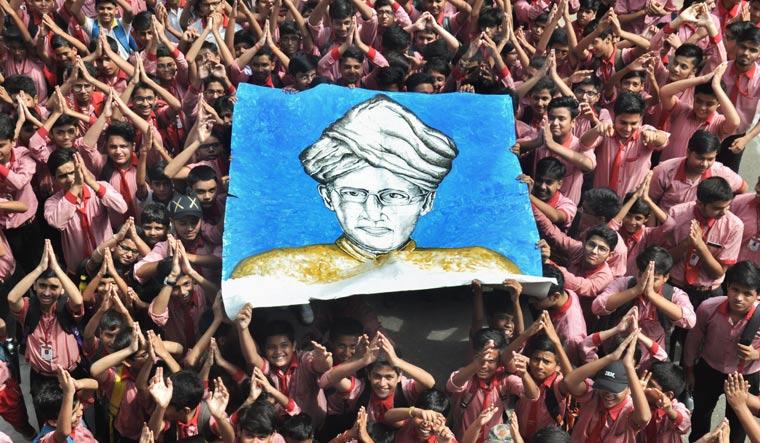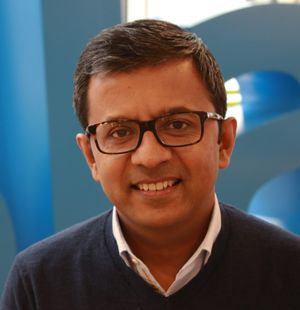Nobel Prize-winning economist and professor at Yale University, Robert Shiller, is the instructor of Financial Markets, one of the most popular courses on online learning platform Coursera. Asked what motivated him to teach online, Professor Shiller revealed, “After I received the Nobel Prize, I had the opportunity to think about my role as an academic and what I could do to support others in the field. I realised this platform could help me reach thousands of learners and give back to the community by sharing my knowledge.”
Technology has enabled a new kind of virtual classroom without borders. It has opened up access to millions who could not have dreamt of an affordable, world-class higher education. And, it has empowered a new breed of teachers who are making an impact that was not possible a decade ago—they now teach the world.
As technology dramatically changes the way we live and work, it is transforming the role and influence of a teacher in today’s world. By exploring the possibilities of a digital classroom, teachers now have the opportunity to lead a movement to democratise higher education in India and reimagine conventional engagement models with students.
In a novel initiative earlier this year, the Indian government invited graduates from top institutes like the IITs and NITs to teach at engineering colleges in remote areas. The response was overwhelming. Over 5,000 graduates came forward, with 1,200+ selected. Over one lakh engineering students are expected to benefit from this effort, which spotlights one of India’s biggest challenges—scaling access to quality higher education. By 2030, we will have the world’s largest working-age population, expected to reach 962 million. India can only capitalise on its demographic dividend if it equips its young workforce to be skilled and employable.
With millions entering the higher education system, scaling the number of teachers has to be supplemented with new delivery models to expand the reach of a quality education. Some of the world’s top institutions are already showing the way. More than 10 million learners around the world have enrolled in Stanford University's free online courses since 2011, spanning subjects ranging from computer science to psychology. Closer home, IIT Bombay and IIM Bangalore are among those already making a premium education more accessible with MOOC offerings. For teachers from our premier institutes, the online medium can mean a quantum leap from teaching hundreds of students on campus to reaching tens of thousands of students online. They can expand their reach far beyond a single college, synchronously instructing students from the largest Indian cities and smallest towns. That is the kind of impact a teacher can make, the life-changing access they can offer.
Inside the new virtual classroom
Teachers today have a blank canvas to reimagine engagement in the digital classroom. They have a wealth of technology tools to drive high-touch learning. Video communication brings students seamlessly into live classrooms. With the latest productivity applications, teachers can offer real-time feedback or set up collaborative, team sessions. They can bring a topic alive with multimedia and visual learning, or choose podcasts when required. They can incorporate game-based learning to challenge students in a fun, competitive environment. Or create an immersive experience with virtual reality.
With India leapfrogging on mobile, and widespread mobile internet usage, all it takes is a smartphone and an internet connection for students to connect with their teacher in this technology-enabled environment.
The scale of online learning now also gives instructors the ability to run experiments that test the response to different content, so they can iterate to improve student outcomes. They can better assess what individual learners want, leading to greater personalization. For example, they can allow students to learn at their own pace or help customise learning paths for different kinds of students.
The shift to lifelong learning
Learning outcomes have never been more important. Students today need a combination of foundational and applied knowledge to be employable once they enter the workforce. Learning will extend and continue at work, as people constantly adapt to technology changes. Staying agile and responsive will need constant reskilling, with learning becoming a way of life, not a stage in life. Across the world, online learning is providing workers with an affordable and flexible model of lifelong learning. In this new scenario, the teacher will be much like what a coach is to an athlete—preparing workers for different eventualities. Continuous learning will be as important for teachers, as it will be for the students they advise and guide over much longer periods of time.
Dr Sarvepalli Radhakrishnan, distinguished scholar and the teacher we most remember on Teacher’s Day said, “True teachers are those who help us think for ourselves.” Most of us can credit a teacher for the qualities or life skills that go on to benefit us in our careers—whether it is developing much-needed confidence or a strong work ethic. While teachers will continue to be invaluable role models and mentors, today they have the responsibility to guide the development of 21st century skills in their students. Technology is upending how we work, changing the nature of jobs and making skills obsolete. Students joining the workforce need to be prepared for transitions in an uncertain future. Teachers have to build skills like critical thinking, problem solving and lateral thinking in their students. They must channel innovation and creativity in the classroom. They must encourage adaptability and resilience, to help students navigate disruption and change.
Building on India’s rich teaching tradition, our teachers today have to evolve into educators for the 21st century. Aided by technology, they must equip new generations of Indians to not just survive, but thrive in the workplace of the future. This will nurture a workforce that puts India on the fast track to economic success.
Author is director, India and APAC, Coursera



